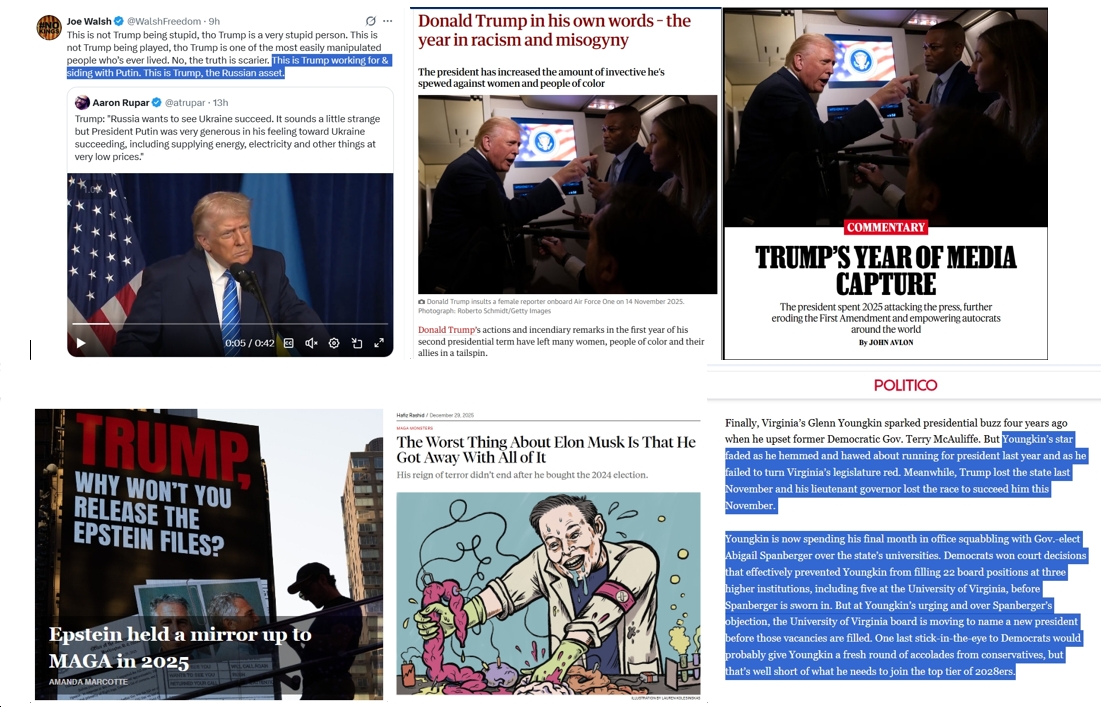I admit it. It increases my stress to read the weather forecast for the U.S. on Election Day. “Storms are forecast in some of the key battleground states for senators and governors, including West Virginia, Ohio, Indiana, Michigan, Tennessee, Mississippi and Georgia.”
I’d rather have no wild cards dealt between now and when the polls close on Tuesday evening.
Also, I’ve long heard about how bad weather helps Republicans. The idea, as I’ve understood it, is that on average the Republican voters are more motivated than the Democratic electorate.
So if voting becomes more difficult, it is the people who are more on the fringe — the people who are poorer, for whom life is more difficult, for whom voting may be a greater strain and who would have gotten themselves to the polls on a sunny day — who are more likely to stay home because of the extra hurdle the weather puts in front of them.
But then, on the second thought, maybe the historical patterns don’t apply to THIS election. In fact, maybe the bad-weather effect will cut the other way.
Take the question: Who will stay home because of the unpleasant weather?
The answer would seem to be: the less motivated.
But the last I heard, there remained the kind of “enthusiasm gap” favoring Democrats that has characterized virtually all the elections since Trump became President. Has it changed since maybe 8 percent more Democrats than Republicans expressed “strong” interest in this election, or strong motivation to vote?
This is an extraordinary political moment, with our democracy on the line. And there are a lot of signs that on the Democratic side there is an extraordinary amount of energy behind a much-desired Blue Wave. Has Trump — with this ugly fear-and-hate-mongering lies to his base — ginned up motivation to match?
Or might the Democrats THIS YEAR be the ones who will not let something so comparatively trivial as bad weather interfere with their voting to protect their health care and protect American democracy?
Another way that things may be turned around has to do with the relative affluence of different sets of voters, and the idea that the more affluent have an easier time arranging their lives so that they can vote.
Generally, the Democratic Party is the one that relies on the votes of the “less advantaged” in our society. That’s still true in many ways, which is why the Republican voter suppression efforts target the poorer and more marginal of our citizens.
But an important part of the Democrats’ hopes for flipping red seats blue, I read, has to do with traditionally Republican (and Republican-leaning independents) in the suburbs. Reports have it that Trump’s ugly campaign of hate-filled lies is turning off these voters and driving them toward the Democrats.
And meanwhile, as Tim Kaine says in his “For All” speech, a whole lot of the people who benefit from Medicaid expansion are people who put Trump and other Republicans into office.
So it’s not clear that having a higher proportion of affluent voters, as opposed to people whose lives are strained, in the mix would have the same pro-GOP effect as it has traditionally had.
Finally, the USA Today article cites an academic study that suggests that it is not just WHO votes when the weather is bad that has helped Republicans, but also HOW people vote.
This study, by Yusaku Horiuchi, found that rain heightens pessimism and increases fears of risk: “Those who feel in an upbeat mood may lean toward the riskier candidate, while those who feel depressed and anxious lean toward the safer candidate,” the study said. As a result, he says, “the choice for risk-averse people is to vote Republican.”
But in today’s political situation, just what direction does “pessimism” and “fear of risk” point? It’s true that the Democrats are still the party that puts out a message of hope while, as Trump shows, the Republicans are all about selling fear.
But that upsurgence of passionate energy that the election of Trump kindled — the energy that put more than a million people into the streets for the Women’s march, and that has kindled an outpouring of voters in special elections around the country over the past 20 months — was not about hope.
It was about fear of what such a monstrous President might do to our nation, our lives, our world.
So if storms make people especially sensitive to the possibilities of bad scenarios unfolding — i.e. especially “pessimistic” — it seems entirely possible that it will be the Blue Wave voters who will have their motivation bolstered.
Surely, it is maintaining the status quo — with Trump in the White House and the Republicans in control of both Houses of Congress — that is what’s truly “risky” in American politics today.



![Sunday News: “Trump Is Briefed on Options for Striking Iran as Protests Continue”; “Trump and Vance Are Fanning the Flames. Again”; “Shooting death of [Renee Good] matters to all of us”; “Fascism or freedom? The choice is yours”](https://bluevirginia.us/wp-content/uploads/2026/01/montage011126.jpg)

![Thursday News: “Europe draws red line on Greenland after a year of trying to pacify Trump”; “ICE Agent Kills Woman, DHS Tells Obvious, Insane Lies About It”; “Trump’s DOJ sued Virginia. Our attorney general surrendered”; “Political domino effect hits Alexandria as Sen. Ebbin [to resign] to join Spanberger administration”](https://bluevirginia.us/wp-content/uploads/2026/01/montage010826.jpg)












